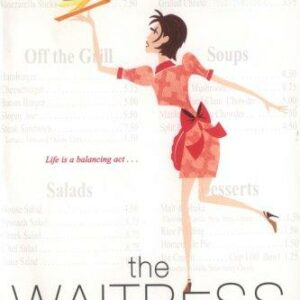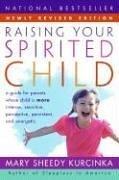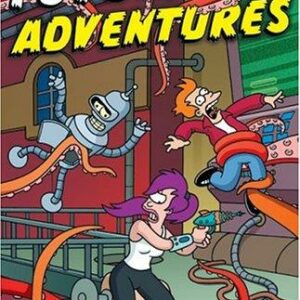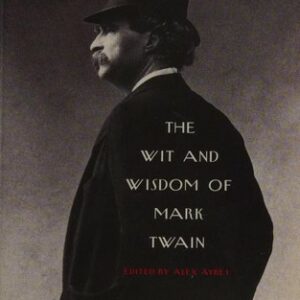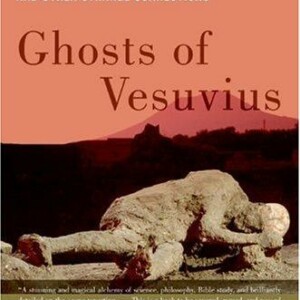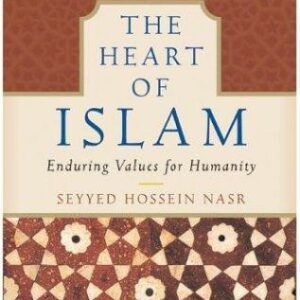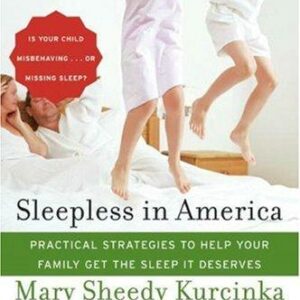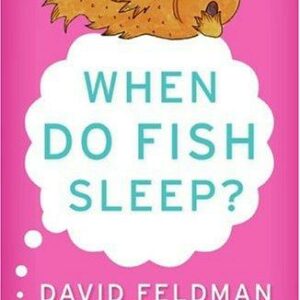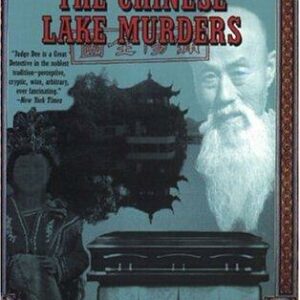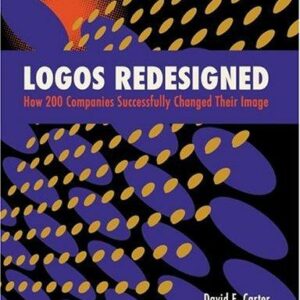I Could Live Here Forever
$28.00
| Title | Range | Discount |
|---|---|---|
| Trade Discount | 5 + | 25% |
- Description
- Additional information
Description
By the author of Something Wild, a gripping portrait of a tumultuous, consuming relationship between a young woman and a recovering addict
When Leah Kempler meets Charlie Nelson in line at the grocery store, their connection is immediate and intense. Charlie, with his big feelings and grand proclamations of love, captivates her completely. But there are peculiarities of his life—he’s older than her but lives with his parents; he meets up with a friend at odd hours of the night; he sleeps a lot and always seems to be coming down with something. He confesses that he’s a recovering heroin addict, but he promises Leah that he’s never going to use again.
Leah’s friends and family are concerned. As she finds herself getting deeper into an isolated relationship, one of manipulation and denial, the truth about Charlie feels as blurry as their time together. Even when Charlie’s behavior becomes increasingly erratic, when he starts to make Leah feel unsafe, she can’t help but feel that what exists between them is destined. Charlie is wide open, boyish, and unbearably attractive. The bounds of Leah’s own pain—and love—are so deep that she can’t see him spiraling into self-destruction.
Hanna Halperin writes with aching vulnerability and intimacy, sharply attuned to Leah’s desire for consuming, compulsive connection. I Could Live Here Forever exposes the chasm between perception and truth to tell an intoxicating story of one woman’s relationship with an addict, the accompanying swirl of compassion and codependence, and her enduring search for love and wholeness.Praise for I Could Live Here Forever
“I was intensely moved by I Could Live Here Forever—I read it in one day and finished sobbing, feeling that I and the author and her beautifully rendered characters had all been through something profound together. Leah’s relationship with Charlie is drawn with unsparing, unpretty candour which is constantly undercut by moments of dazzling tenderness—this book acts as a kind of vivid, devastating answer to the often heard question ‘How could you stay with a person like that?’. Halperin’s desire and ability to so deeply consider the lives in her book became as affecting to me as the story itself, creating the sort of author-reader intimacy rarely found but always prized. I will remember and re-read this gorgeous, emotionally intelligent, truly beautiful book often.”
—Megan Nolan, author of Acts of Desperation
“A superb, uncynical novel about the innocence of unsustainable love—a wonderfully haunting and memorable book.”
—Joan Silber, award-winning author of Secrets of Happiness
“With an attention to intimate detail that is both unflinching and compassionate, Hanna Halperin conjures full, complex characters who challenged my understanding of the relationship between love and harm. I devoured this in a day.”
—Naomi Krupitsky, New York Times bestselling author of The Family
“A stark, beautiful novel about the risk and intoxication of obsessive love and a young woman’s need to be needed. Hanna Halperin makes you feel her heroine’s hunger in every action and hesitation. Even as I feared for Leah, Halperin’s writing made it impossible to look away. You won’t be able to put this book down.”
—Alyssa Songsiridej, author of Little Rabbit
“I Could Live Here Forever is a gripping novel about the ways we try to be the best versions of ourselves, and pull each other back from collapse. With careful prose, lush descriptions, and skilled character insight, Hanna Halperin gives readers a stunning story that changes the way we see the people around us.”
—Ethan Joella, author of A Little Hope
“I was immediately gripped by Hanna Halperin’s stunning novel, I Could Live Here Forever. With a frank assuredness reminiscent of Sally Rooney and Emma Cline, Halperin balances a close lens over both the anxiety and hopefulness of the Millennial viewpoint, bringing so much that has come to define the generation—the opioid crisis, economic and occupational precarity, the uncanny intensity of intimacy expressed on a smartphone—into stark relief. I felt so much heartbreak and fear and frustration for Leah and Charlie, whose love affair was as irresistible to me as it seemed to the characters themselves. This is a book that will stay with readers, and make them feel alive.”
—Liv Stratman, author of Cheat Day
Praise for Something Wild
A NATIONAL JEWISH BOOK AWARD FINALIST FOR DEBUT FICTION
“This wise, brilliant novel is so special, so overflowing with honesty and love—about motherhood, sisterhood, what it’s like to be a woman—that every paragraph feels like an epiphany. Hanna Halperin knows the fierce love that can exist especially among broken things. Something Wild moved me deeply.”
—Glennon Doyle, #1 New York Times bestselling author of Untamed
“Propulsive . . . . Weaving between the past and the present of all three women, Something Wild creates a compelling, believable and upsetting portrayal of how trauma ripples through a family. . . . Good books sometimes cut to the bone, and this one feels like a scythe.”
—Scaachi Koul, The New York Times Book Review
“Rarely has an author taken the time and demonstrated such honesty with the complexity of girls’ desire and how they act on it, how it can sour the sweetest relationship. . . . At a time when many novels rely on intricate plots or eccentric narrative voices, Something Wild eschews literary pyrotechnics and relies instead on the power of truth. We may not like what we see, but we know we’re being given an opportunity to change the way we look at sexual dynamics.”
—Bethanne Patrick, The Washington Post
“Something Wild is the story of the fierce love and secrets that exist between sisters Tanya and Nessa and their mother, Lorraine—but I was just as impressed by the radical interiority that Hanna Halperin grants her characters. The women of this novel are painted with startling honesty and insight: they think the unthinkable, do the unfixable, and their raw vulnerability is thrilling, for it acknowledges our own. In this emotionally astute debut, Hanna Halperin shows herself to be a writer who is as compassionate as she is unafraid of darkness and taboo. Something Wild is tender, fearless, and savagely alive.”
—Chloe Benjamin, New York Times bestselling author of The Immortalists
“In Something Wild, Hanna Halperin takes a startling look at intimacy in its kaleidoscopic range—its capacity to make and undo us, to deliver us to danger and lead us out again. The grace of Halperin’s careful eye makes it impossible to diminish or look away from the women at the center of this book, even when their lives fail to give them the mercy we would want for them. This is a brave and exquisite debut.”
—Danielle Evans, author of The Office of Historical Corrections
“What if you found out your mother was being abused? Tanya and Nessa head back to Boston to help their mother move out of their childhood home, only to find out that she’s in an abusive relationship with their stepfather. The sisters want to tackle the issue in different ways, colored by a secret experience they’ve lived through.”
—Zibby Owens, Good Morning AmericaHanna Halperin is the author of Something Wild, which won the 2021 Edward Lewis Wallant Award and was a finalist for the 2021 National Jewish Book Award for Debut Fiction. Her stories have been published in The Kenyon Review, n+1, New Ohio Review, and Joyland. She has taught fiction workshops at GrubStreet in Boston and worked as a domestic violence counselor.An Introduction to I Could Live Here Forever
“Leah—Charlie’s voice emerged from my phone, soft but urgent—when I was driving over here I almost did something really bad. Something I could never take back. But then I thought about you. I realized you’re the only person in my life who really matters. I’m outside your door and I know you’re there and I just want to talk to you about what’s been going on in my life because I think you’re probably really confused or someone’s been telling you something untrue about me. I love you.” (pp. 134–35)
When Leah Kempler meets Charlie Nelson at a grocery store in Madison, Wisconsin, she feels instantly drawn to him in a chemical, primal way. And it’s mutual—he meets her passion with histrionic text messages and crooning love songs. They spend entire days together in bed. In their happiest moments, they see the best in each other and in themselves, and this is irresistible to them. It starts to feel like nothing else matters, and their relationship begins to overtake them both. Leah writes less—even though that’s why she moved to Wisconsin—and time seems to slip away in each other’s company. Charlie is a recovering heroin addict, and his behavior is erratic and concerning. He’s inconsistent, oscillating between brief bursts of manic energy and falling asleep in his car or in the bath. They don’t go on dates. They distance themselves from the other people in their lives and take up a new shared reality in which everything orbits around their relationship.
Leah knows, on some level, that there’s a dark underside to her relationship with Charlie. But their connection feels so real, so powerfully natural. She burrows deeper, dismissing the concern of friends and family, the psychologically simplistic reasoning they lean on to explain why she’s so entrenched in an obsessive relationship with an addict. It’s not because Leah’s mother abandoned her family when Leah was just thirteen. Nor is it because Leah is a writer, always disappearing into fantasies and melodramas. The overpowering truth, Leah is convinced, is pure—she and Charlie love each other. His vulnerability is magnetic to her. The sex is incredible. Being close to him is the greatest feeling in the world, even as they perfectly enable each other’s most dangerous tendencies. She doesn’t think he has relapsed—he promises her he’s never going to use again—but her denial runs so deep that she can’t see beyond the haze of her own love, pain, and codependence.
Breathless and unflinching, I Could Live Here Forever is a hypnotic, propulsive dive into the interiority of two people who throb with passion and find in each other a depth of connection that feels fated. With piercing candor and tenderness, Halperin examines the messy, complex experience of losing yourself in a relationship and coming back up only to wonder if life is richer in the extremes.
Q&A with Hanna Halperin
Charlie and Leah’s relationship is at the center of the novel. What most interested you about this relationship? Did the way you see Leah and Charlie—as individuals and as a couple—change over the course of writing the novel?
I was interested in the intensity of Leah and Charlie’s relationship. I wanted to write about a kind of love that felt shameful to Leah but at the same time was inevitable and magnetic and real. The way I saw Leah and Charlie and their relationship was constantly changing as I was working on the novel. This grayness was disturbing to me, but that is also what I found compelling about writing it. I was writing about the relationship to inhabit it and attempt to portray their specific intimacy, not to diagnose it or to make an argument about it being a certain type of relationship.
Can you talk about what it was like to write about addiction? Have you always been attuned to addiction and the various shapes it takes in people, or did the way you see addiction evolve as you were writing the novel?
I knew that as much as this novel would be about drug addiction, it would also be about the feeling of being addicted to another person, and how impossible it can feel to leave a relationship even when you know it’s bad for you. Writing this book made me think so much more about all the different ways we lose ourselves—whether it’s through a relationship or validation or success or through stories or art or making art. It was through writing about addiction that I started to see how these different kinds of obsessions and addictions mirrored and played off of one another.
What kind of research did you do for this novel? What other books informed and inspired your writing?
I did a lot of research about addiction, particularly heroin addiction—although I researched years before I ever sat down to write. I’ve been gathering research in sort of a natural way over the past seven years—through fiction, movies, documentaries, and reading about it online. During my one semester in social work school in 2019, I chose research topics having to do with opioid addiction. I imagine many people can relate to this—after I grew close to someone and then lost that person to addiction, I started noticing it a lot more. The headlines in the news or the books that had to do with it, even other addicts in my life who I hadn’t realized were addicts—all of that had new meaning to me. I’m by no means an expert on addiction, but I know much more about it now than I ever did while I was growing up. I’m attuned to it differently in the domestic violence counseling work I do, too.
A few books that inspired the writing of this novel or were useful reads for me during revision: Normal People by Sally Rooney, Lucky Us by Joan Silber, Long Bright River by Liz Moore, and Acts of Desperation by Megan Nolan.
There’s a through line in the novel about motherless daughters and childless mothers. What role do you think Faye plays in Leah’s relationship with Charlie, and do you think Leah reaches a new understanding about her own mother?
Leah feels more at home in the Nelsons’ house than in her home. Being in Charlie’s house in the suburbs with Faye is comforting to Leah, but I see Leah’s attachment to Faye as another way for Leah to sink into denial and into the parts of the relationship with Charlie that feel good in the moment. Faye’s maternal warmth complicates things for Leah. Leah desperately wants to believe that Faye loves her. She doesn’t allow herself to recognize that Faye might be more protective over Charlie than she is over Leah.
I don’t know if Leah reaches a new understanding about her mother, except that she lets go of needing one so badly.
Whether it’s through binging TV shows, sex, writing, drugs, or alcohol, the characters in the novel are all looking for ways to make life more bearable. Do you think we are predisposed to these tendencies, and is there something inherently unhealthy about behaviors that self soothe and/or resist reality?
It’s so natural to find ways to self soothe, and I don’t see this as inherently healthy or unhealthy. This novel is a lot about depression and loneliness. It’s human, I think, to turn to these things—TV, reading, sex, drugs—as a way to numb pain. Sometimes it’s these coping mechanisms that save us—and sometimes they can be completely devastating.
Writing is one thing that makes me feel alive and connected in a way that nothing else really does. I wrote the first draft of this novel during the pandemic when I’d been feeling pretty low. Writing connects me to the world but also separates me from it. I live inside the draft—an imaginary world—but the intense experience of writing gives me a sort of energy to engage in the real world in a way I sometimes feel I am missing. Sometimes it feels drug-like.
Questions for Discussion
1. Leah is so deep in her relationship with Charlie that she is in denial when he begins to relapse. What was your experience reading this part of the novel? Was it clear to you that Charlie was in trouble, or were you, as a reader, so entrenched in Leah’s perspective that you believed him, too?
2. Did you think Leah was a reliable narrator? Did you ever question the objectivity of her perspective? When and why?
3. The novel orbits around Leah and Charlie’s consuming, destructive relationship. How do you define toxic relationships? Why do you think someone might stay in a toxic relationship?
4. Charlie explains to Leah what heroin feels like: “Imagine you’re in pain—the most excruciating pain of your life. Your skin is on fire and your thoughts are agonizing you and any inch of light or movement makes you nauseous. And you’re scared because you don’t know when or if it’s ever going to end. . . . But you know that there’s a button somewhere, and all you have to do is press that button, and that pain will vanish. It will just disappear. . . . And you will feel warm and safe and completely protected. That button is heroin.”
Addiction is examined in several ways in the novel. Beyond drug addiction, what other kinds of compulsions do the characters have? What role do these other forms of compulsion play, and how do they affect the way power and control are exerted in the novel?
5. Did reading about Charlie’s addiction and its impact on the people around him—especially on Leah and his family—make you think about the opioid epidemic differently? How did the depiction of heroin addiction in the novel compare to your understanding of the problem from the news or from your personal life?
6. What were your feelings about Charlie? Did they change over the course of the novel?
7. Charlie believes that he was destined to become addicted to heroin. Do you think there are aspects of Charlie and Leah’s relationship that mimic addiction? Do you believe that some relationships are fated or connected in a way that is predetermined?
8. Discuss Leah’s relationship to writing. How do you think it’s influenced by Charlie, by her mother, by her lonely childhood? Do you think Leah’s propensity for fiction and storytelling affects the way she understands and experiences her relationship with Charlie?
9. Leah’s mother abandoned the family when Leah and her brothers were teenagers. Thirteen years later, Leah travels to St. Paul to pay her a visit. What did you think of this encounter? Did you think Leah understood something new about her mother, or herself, after this visit?
10. Do you think Leah’s relationship to men, and to romantic partnership, changes by the end of the novel?US
Additional information
| Weight | 16.2 oz |
|---|---|
| Dimensions | 1.1600 × 5.8500 × 8.5900 in |
| Imprint | |
| Format | |
| ISBN-13 | |
| Author | |
| Audience | |
| BISAC | |
| Subjects | american literature, FIC019000, realistic fiction, FIC025000, novels, short stories, psychological thriller, love story, Creative writing, addict, literary fiction, coming of age, fiction books, books fiction, realistic fiction books, fiction psychological, psychological fiction, best book club books, mfa, something wild, obsessive love, romance, mental health, psychology, Heroin, marriage, relationship, relationships, family, addiction, modern, music, Literature, love, thriller, drama, fiction, suspense, mystery, Friendship, grief, death, 21st century |


